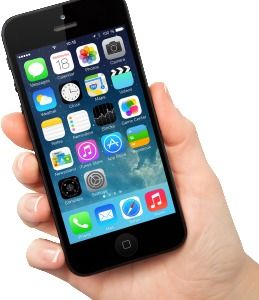Here is a question that keeps me up at night…
Is the San Bernardino iPhone just locked or is it properly encrypted?
Isn’t full encryption beyond the reach of forensic investigators? So we come to the real question: If critical data on the San Bernardino iPhone is properly encrypted, and if the Islamic terrorist who shot innocent Americans used a good password, then what is it that the FBI thinks that Apple can do to help crack this phone? Doesn’t good encryption thwart forensic analysis, even by the FBI and the maker of the phone?
In the case of Syed Rizwan Farook’s iPhone, the FBI doesn’t know if the shooter used a long and sufficiently unobvious password. They plan to try a rapid-fire dictionary attack and other predictive algorithms to deduce the password. But the content of the iPhone is protected by a closely coupled hardware feature that will disable the phone and even erase memory, if it detects multiple attempts with the wrong password. The FBI wants Apple to help them defeat this hardware sentry, so that they can launch a brute force hack—trying thousands of passwords each second. Without Apple’s help, the crack detection hardware could automatically erase incriminating evidence, leaving investigators in the dark.
Mitch Vogel is an Apple expert. As both a former police officer and one who has worked with Apple he succinctly explains the current standoff between FBI investigators and Apple.
The iPhone that the FBI has is locked with a passcode and encrypted. It can only be decrypted with the unique code. Not even Apple has that code or can decrypt it. Unlike what you see in the movies, it’s not possible for a really skilled hacker to say “It’s impossible“” and then break through it with enough motivation. Encryption really is that secure and it’s really impossible to break without the passcode.
What the FBI wants to do is brute force the passcode by trying every possible combination until they guess the right one. However, to prevent malicious people from using this exact technique, there is a security feature that erases the iPhone after 10 attempts or locks it for incrementally increasing time periods with each attempt. There is no way for the FBI (or Apple) to know if the feature that erases the iPhone after 10 tries is enabled or not, so they don’t even want to try and risk it.
 So the FBI wants Apple to remove that restriction. That is reasonable. They should, if it is possible to do so without undue burden. The FBI should hand over the iPhone to Apple and Apple should help them to crack it.
So the FBI wants Apple to remove that restriction. That is reasonable. They should, if it is possible to do so without undue burden. The FBI should hand over the iPhone to Apple and Apple should help them to crack it.
However, this isn’t what the court order is asking Apple to do. The FBI wants Apple to create software that disables this security feature on any iPhone and give it to them. Even if it’s possible for this software to exist, it’s not right for the FBI to have it in their possession. They should have to file a court order every single time they use it. The FBI is definitely using this situation as an opportunity to create a precedent and give it carte blanche to get into any iPhone without due process.
So the answer to your question is that yes it is that secure and yes, it’s a ploy by the FBI. Whether it’s actually possible for Apple to help or not is one question and whether they should is another. Either way, the FBI should not have that software.
